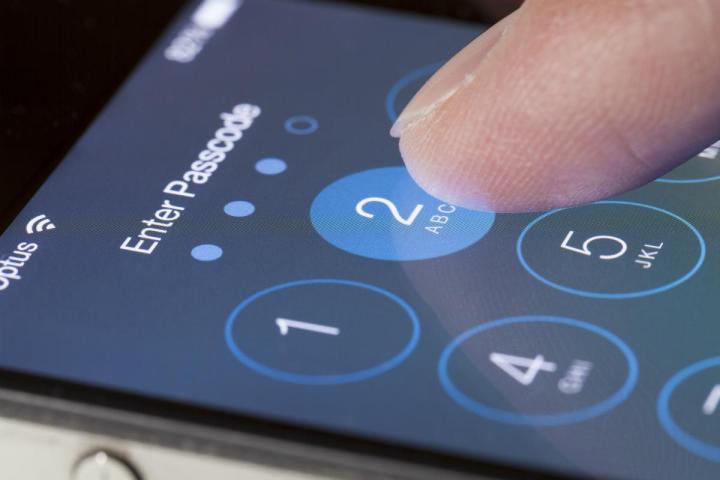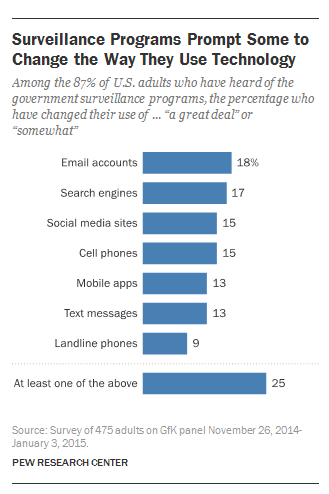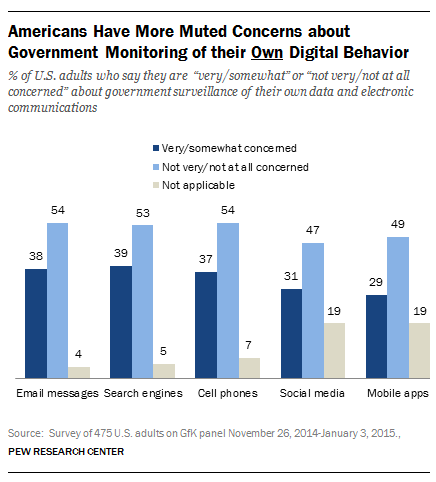
The report, titled “Americans’ Privacy Strategies Post-Snowden,” summarizes responses from American adults about their thoughts and responses to the revelations about the government’s information collection activities. Overall, 87 percent of respondents said they had heard something about the surveillance programs – 31 percent said they heard a lot about them and 56 percent said they heard a little about them.
Of this group, 34 percent (30 percent of all U.S. adults) have taken at least one step to hide or shield their personal information from the U.S. government. Examples of measures taken include changing privacy settings on social media outlets (17 percent), using social media less often (15 percent), avoiding certain apps (15 percent), uninstalling apps (13 percent), speaking more in person rather than online or via phone (14 percent), and avoiding the use of certain terms in online communications (13 percent).
The Pew report also notes that 25 percent of respondents aware of the surveillance programs (about 22 percent of all U.S. adults) have changed the patterns of their use of technological platforms “a great deal” or “somewhat.” Email use was the most influenced by the Snowden leaks, followed by search engine use, social media use and cell phone use.

“One potential reason some have not changed their behaviors is that 54% believe it would be ‘somewhat’ or ‘very’ difficult to find tools and strategies that would help them be more private online and in using their cell phones,” according to Pew. For example, the report notes that 53 percent of respondents have not adopted or considered using a search engine that doesn’t keep track of their search history and 13 percent are unaware of the existence of such tools.
The survey also found that search engines are the technological platform that concerns them the most when it comes to surveillance, followed by email messages, cell phones, social media and mobile apps.

In a video interview for The New Yorker Festival in October, Snowden advised people to “get rid of Dropbox” and recommended apps like RedPhone and Silent Circle as alternatives to regular SMS tools.
This Pew Research Center report shares findings based on 475 surveyed adults (18 years of age or older) living in the U.S. between Nov. 26, 2014 and Jan 3, 2015.


